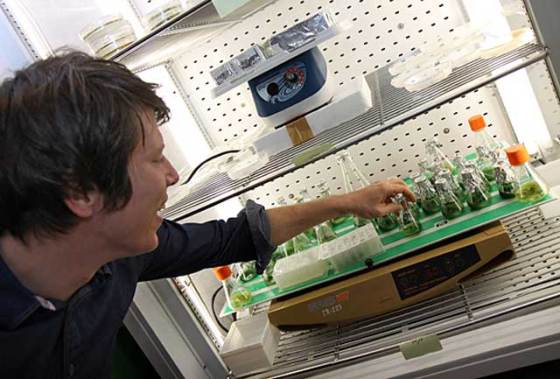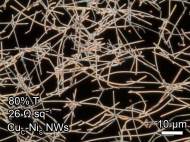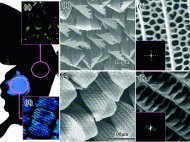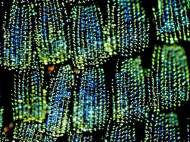Making fuel from genetically-modified cyanobacteria
 Researchers at KTH Royal Institute of Technology in Stockholm have succeeded in using genetically modified blue-green algae known as cyanobacteria to produce butanol – a hydrocarbon-like fuel that can be used to power motor vehicles. The interest in butanol as an alternative fuel stems from the fact that it has environmental and efficiency advantages over ethanol.
Researchers at KTH Royal Institute of Technology in Stockholm have succeeded in using genetically modified blue-green algae known as cyanobacteria to produce butanol – a hydrocarbon-like fuel that can be used to power motor vehicles. The interest in butanol as an alternative fuel stems from the fact that it has environmental and efficiency advantages over ethanol.
Butanol production is likely to be 20 times more efficient than ethanol production from sugar cane and corn. The price of corn rises slowly while jumping up and down continually, and needless to say it is quite unpredictable. Namely, we’re running out of fertile farmland and ethanol production from corn is also influenced by the price of oil used in corn transportation.
The raw materials needed to produce butanol, such as sunlight, carbon dioxide and seawater, are abundant and renewable. Method of butanol production from cyanobacteria requires very little ground space, and it doesn’t need any fertilizer since some cyanobacteria can capture nitrogen from the air. KTH research team linked production of the butanol to the algae’s natural metabolism.
“With relevant genes integrated in the right place in cyanobacteria’s genome, we have tricked the cells to produce butanol instead of fulfilling their normal function“, said Paul Hudson, a researcher at the School of Biotechnology at KTH who leads the research.
By adjusting the surrounding environmental conditions, the research team has showed that it can control butanol production. This means that they should be able to control the times at which the genetically modified cyanobacteria produced butanol.
When it comes to environmental impact, butanol releases more carbon dioxide per weight in comparison with ethanol. This is because butanol has a longer carbon chain than ethanol, so it contains more energy per weight. However, this means that smaller amounts of butanol should be used to achieve the same energy gains of ethanol. Considering the fact that butanol production from cyanobacteria is direct and it does not include petroleum-dependent steps which are associated with the production of other bioflues, this process could be considered more environmentally friendly than its competitors.
“We are very excited that we are now able to produce biofuel from cyanobacteria. At the same time we must remember that the manufacturing process is very different from today’s biofuels. We need to improve the production before it becomes commercially viable“, said Hudson.
Important next step is to ensure that cyanobacteria produce butanol in larger quantities without dying of exhaustion or from produced butanol, since butanol is very toxic to cyanobacteria. Hence, it is of great importance to figure out how cells are being poisoned by butanol, as well as which genes are turned on and off in the response to butanol. After that, it may be possible to engineer cyanobacteria that could be more tolerant or even resistant to butanol.
KTH researchers said that their next goal is to modify more genes in order to produce compounds with longer carbon chains that can function as a substitute for gasoline. Team also planes to develop fuel from cynobacteria that will be more energetic and hence particularly suitable for aircraft engines. They claim that it could take a decade before production of biofuel from cyanobacteria will be feasible at an industrial level.










Leave your response!